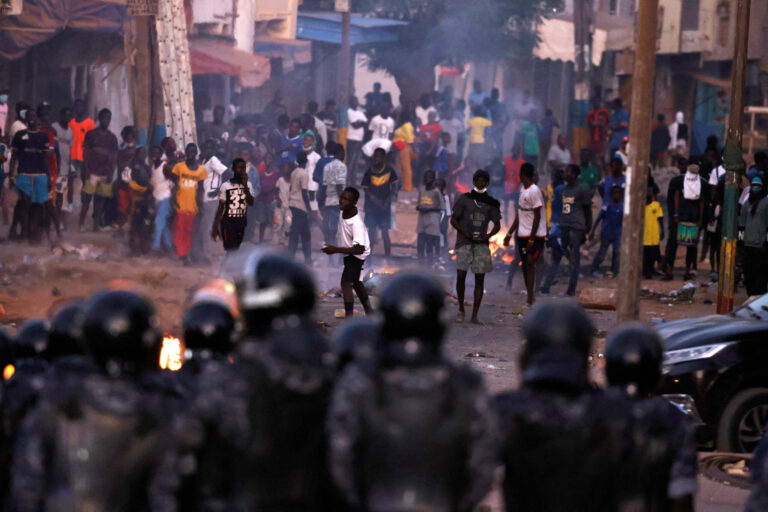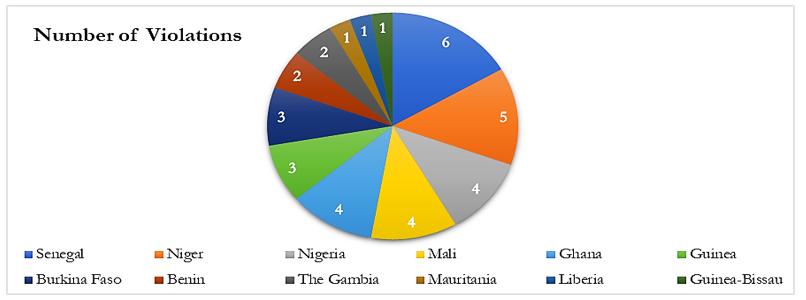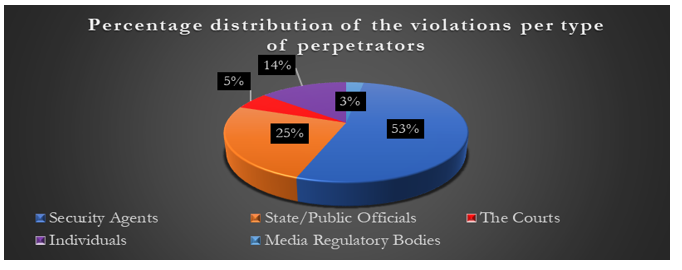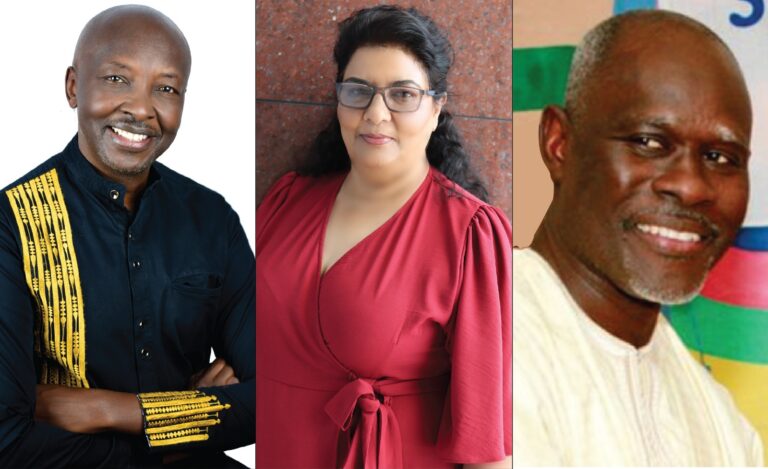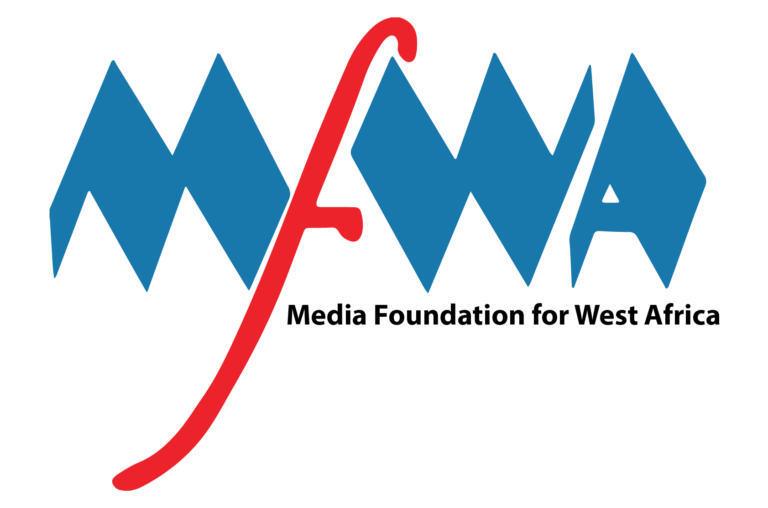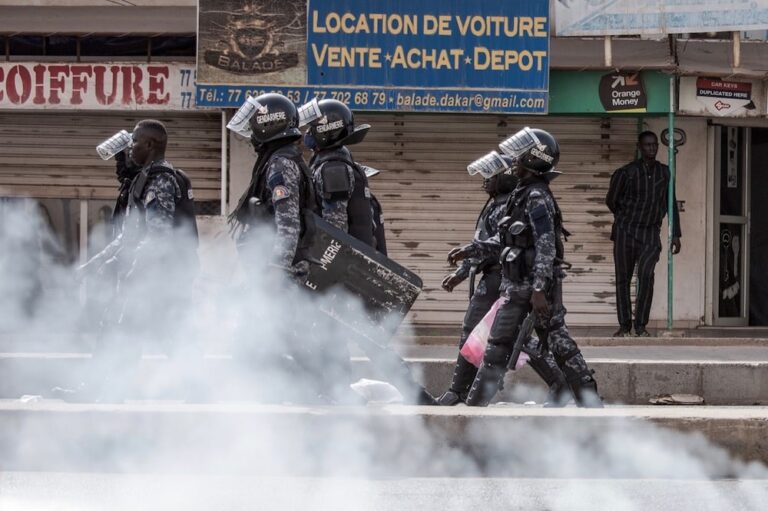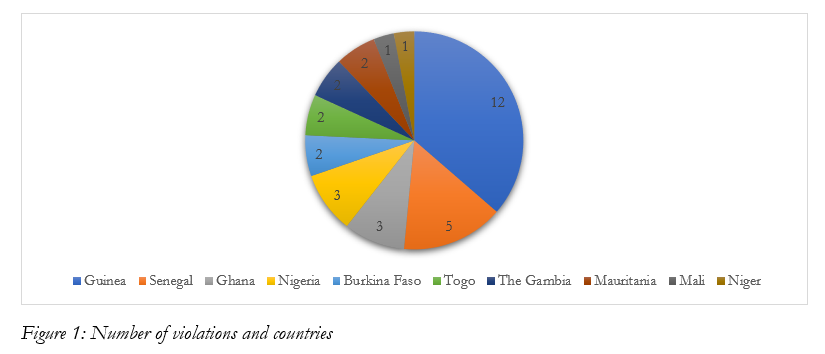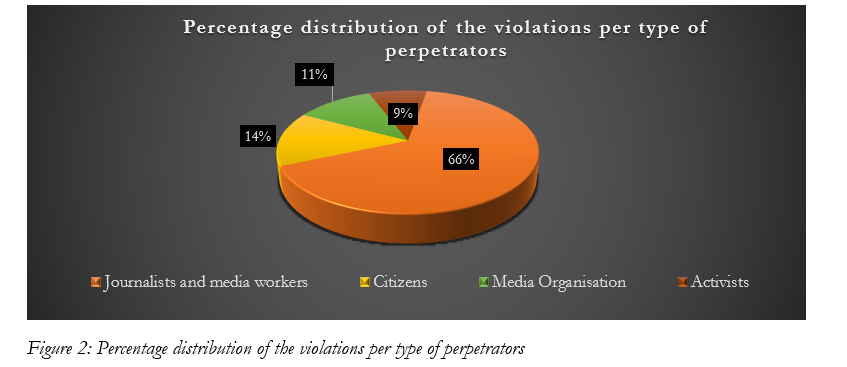An investigative journalist with HumAngle Media in Nigeria, Muhammed Akinyemi, has emerged as West Africa Journalist of the Year.
His story on the recurrent soot problems in the southern Nigeria province, of River State, wooed the grand jury of the West Africa Media Excellence and Awards to crown him over 16 other journalists shortlisted for the ultimate prize.
Before winning the ultimate prize of the Awards nights in Accra, Mr Akinyemi’s report, titled All Die Na Die: At The Heart Of Nigeria’s Soot Problem, was adjudged the best story in the Environmental Reporting category.
Employing a scientific approach to the story, including air quality tests, the investigative report detailed how illegal oil refining is causing irreversible damage to the environment, the people, and the air in Port Harcourt. While the government said it had dismantled illegal refining sites, a visit to different refining sites showed otherwise.
According to the story: “Since 2015, Rivers State has suffered a recurrence of soot covering its air and lungs. While soot may be caused by illegal refining using crude tools, there’s evidence that legal and proper refining contributes too. But Mr Ese [an air quality expert] confirms that the refineries in Port Harcourt and across the state are not functioning. “They are not refining any product,” he says. “[Most of the] black soot is caused by illegal human activities.”’
It is the second consecutive time a Nigerian journalist has been crowned with the most prized honour in West African journalism. Coincidentally, it is also the second time in a row that an environmental story on soot has won the ultimate prize at WAMECA.
He takes over from his Nigerian compatriot, Tessy Igomu of the Punch, who exposed how pollution from a Chinese-owned waste recycling company took a toll on the health of some residents of Orimerunmu, a community in Ogun State in Nigeria.
On his night of glory, Mr Akinyemi said the first time he planned the story, he feared the scope would be too large and difficult to execute but his editors and mentors told him to do it and wait for the reaction.
“I am grateful to all the journalists who have done great works before me. I am grateful to all the human rights lawyers who have motivated me. Thank you for shaping my path,” he said.
This year, there were 825 entries from 15 countries in West Africa.
Judges for WAMECA expected the stories to be unique in angle, have context and hold power accountable.
Tidiane Sy, a member of the grand jury, advised journalists to ensure stories are engaging, and relatable and avoid repetition and overwriting when telling stories.
There were no awards for Health and Anti-Corruption reporting categories this year. The jury blamed the lack of quality and depth in the stories submitted for the two categories.
The full list of winners of WAMECA 2022 are:
Category: West Africa Journalist of the Year
Winner: Muhammed Akinyemi
Media House: Humangle Media, Nigeria
Story title: All Die Na Die: At The Heart Of Nigeria’s Soot Problem
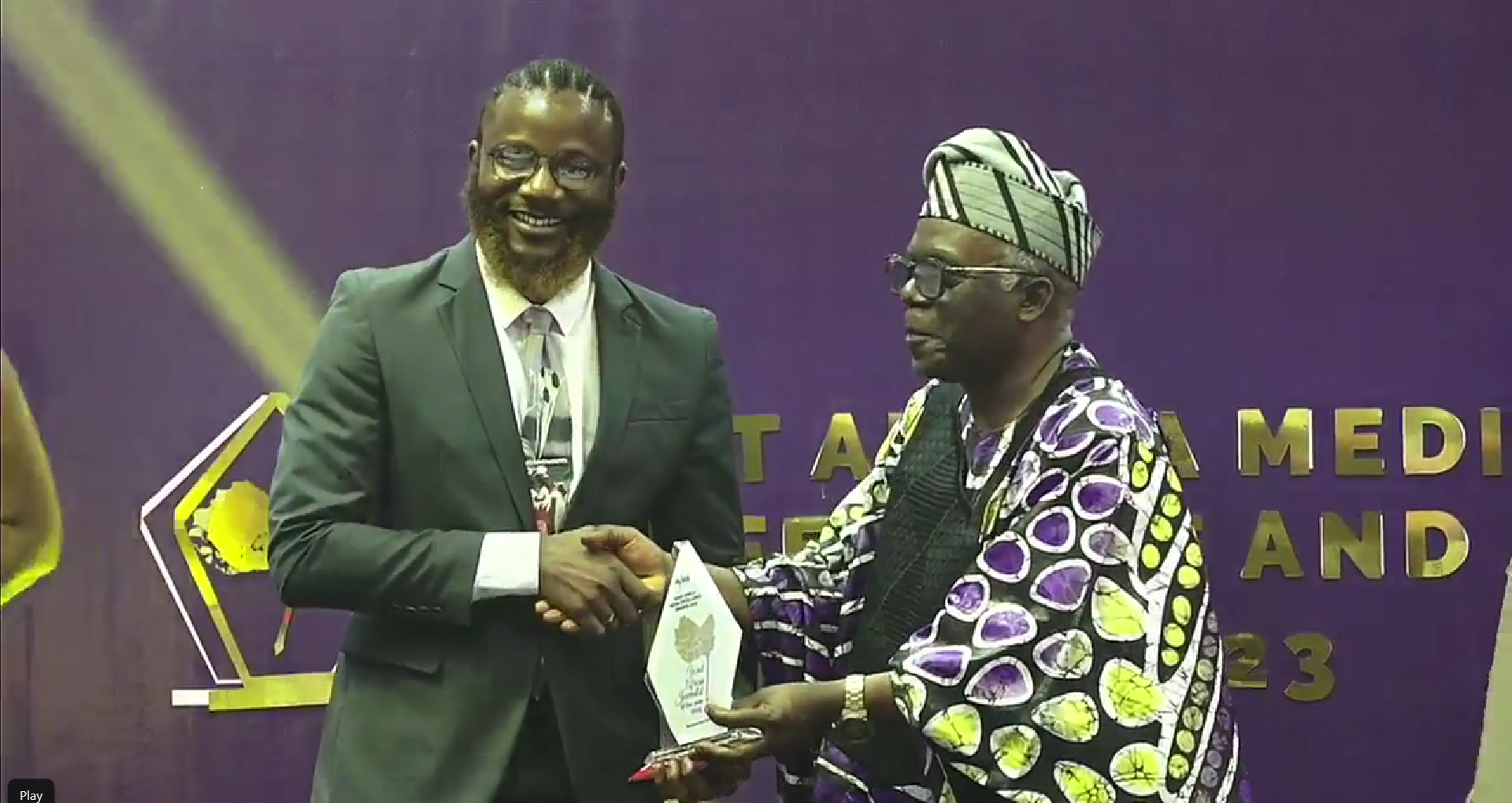
—
Category: Environmental Reporting
Winner: Muhammed Akinyemi
Media House: Humangle Media, Nigeria
Story title: All Die Na Die: At The Heart Of Nigeria’s Soot Problem
—
Category: ICTs Reporting
Winner: Emmanuel Kwasi Debrah
Media House: Multimedia Group Limited, Ghana
Story title: Trickling credit: mobile phone users in Ghana pay for unknown subscriptions
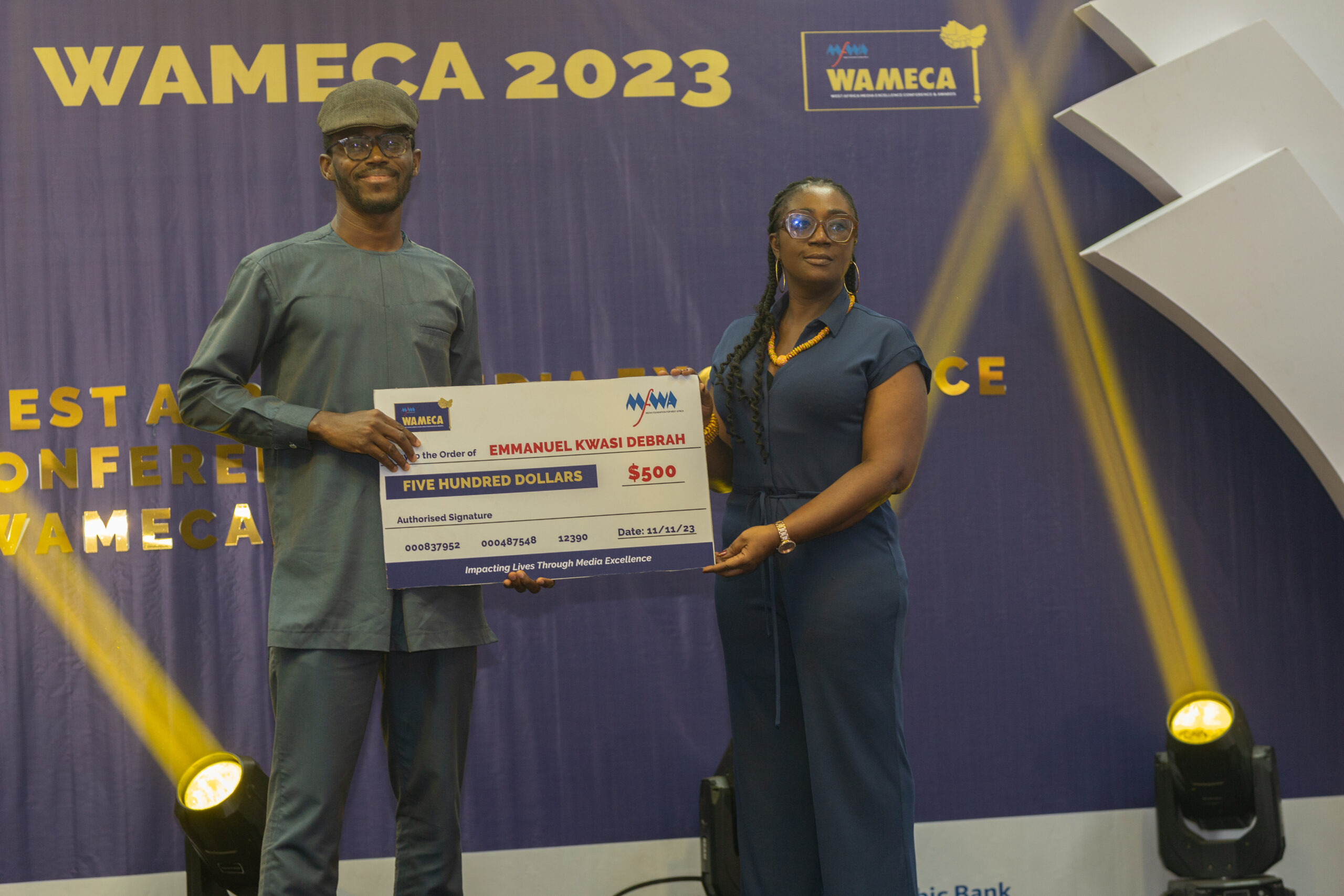
—
Category: Business Reporting
Winner: Gbenga Salau
Media House: The Guardian Newspaper, Nigeria
Story title: How ‘Ghanaian herbal products’ are manufactured, marketed in Nigeria
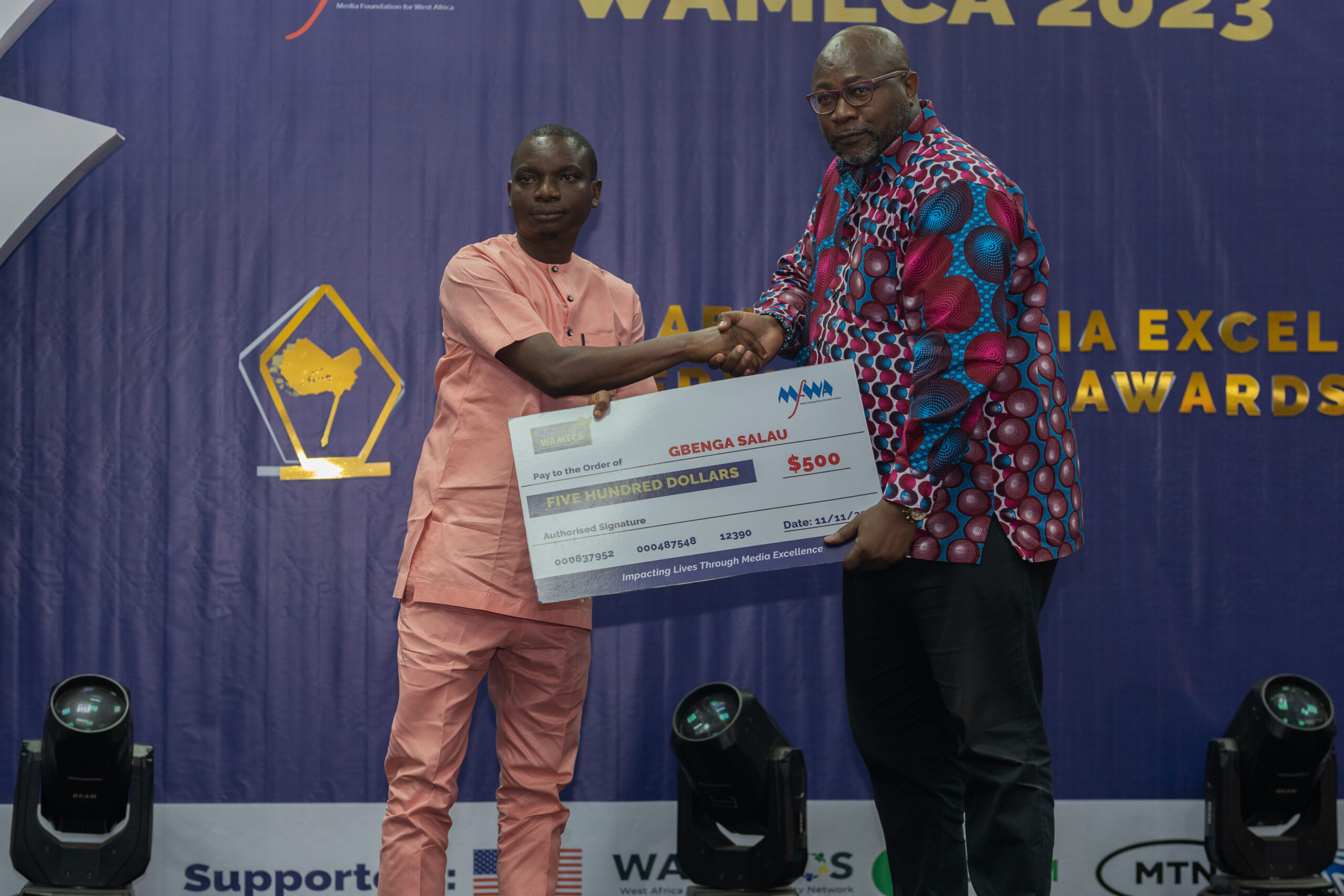
—
Category: Human Rights Reporting
Winner: Komla Adom
Media House: TV3, Ghana
Story title: THE ASSIGNMENT: Education Reforms In Ghana | The Reality & The Gaps

—
Category: Migration Reporting
Winner: Emmanuel Ayamga
Media House: Pulse Ghana, Ghana
Story title: Bombs, fear & iffy survival: The escape story of Ghanaian footballers in war-torn Ukraine
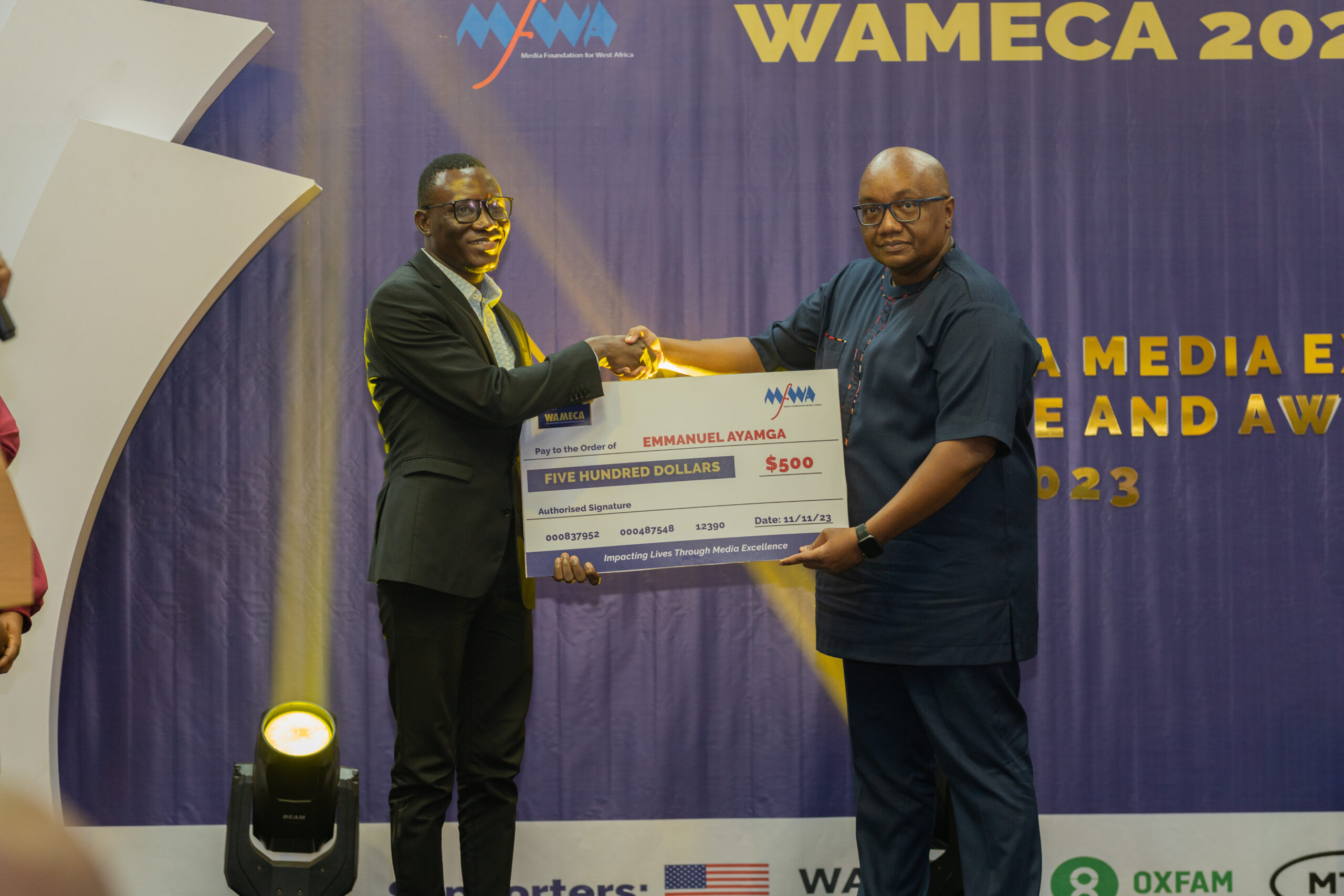
—
Category: Investigative Reporting
Winners: Francisca Enchill
Media House: Joy News/Corruption Watch
Story title: Money Over Human Lives…Rot @ DVLA Exposed!
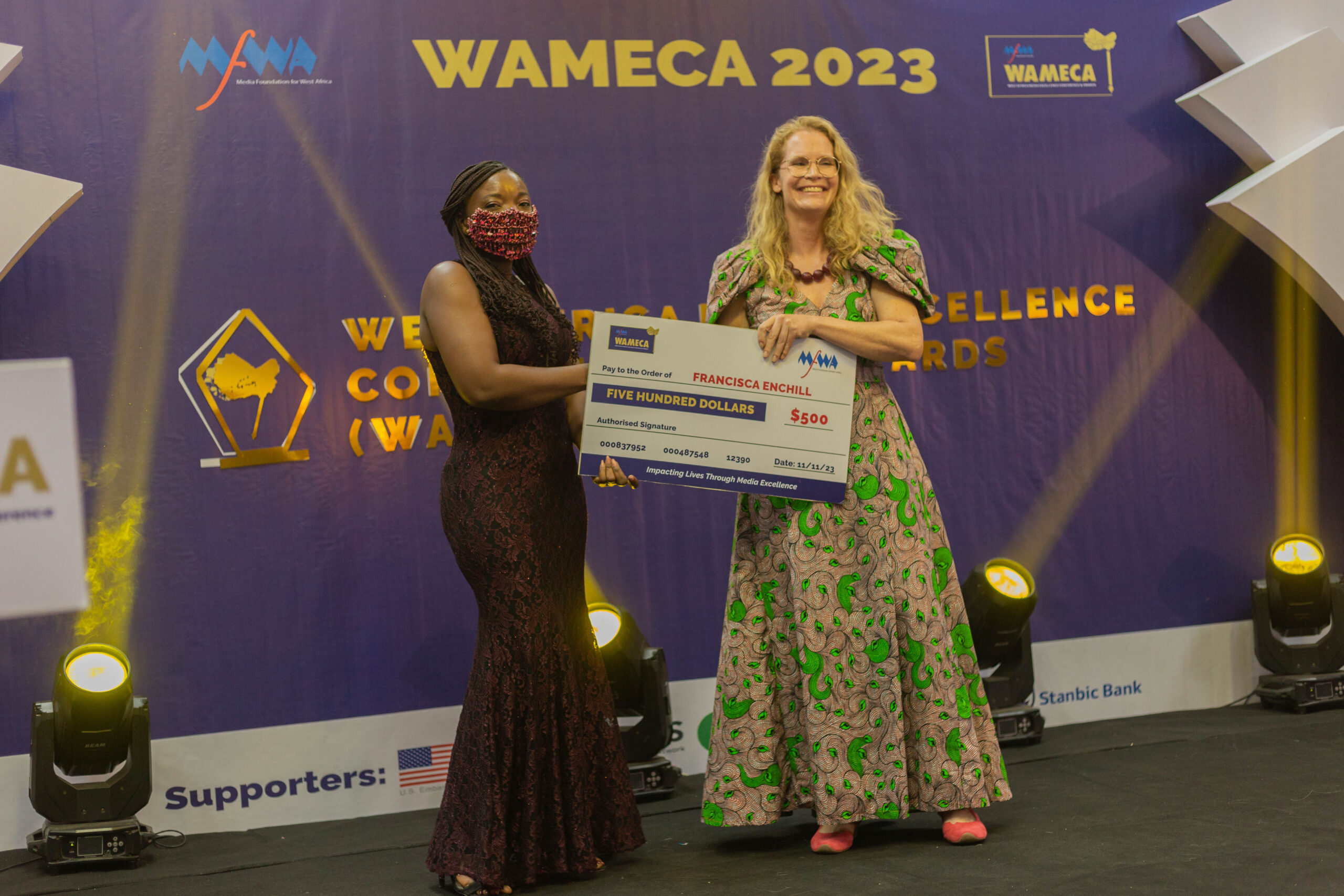
Organised by the Media Foundation for West Africa, WAMECA honours exemplary work, in-depth investigations and exceptional storytelling.
In his welcome address, Executive Director of the MFWA, Sulemana Braimah, said the ongoing recession of democracy in West Africa and the repression of its civic space require journalists to play the watchdog role and hold duty-bearers accountable.
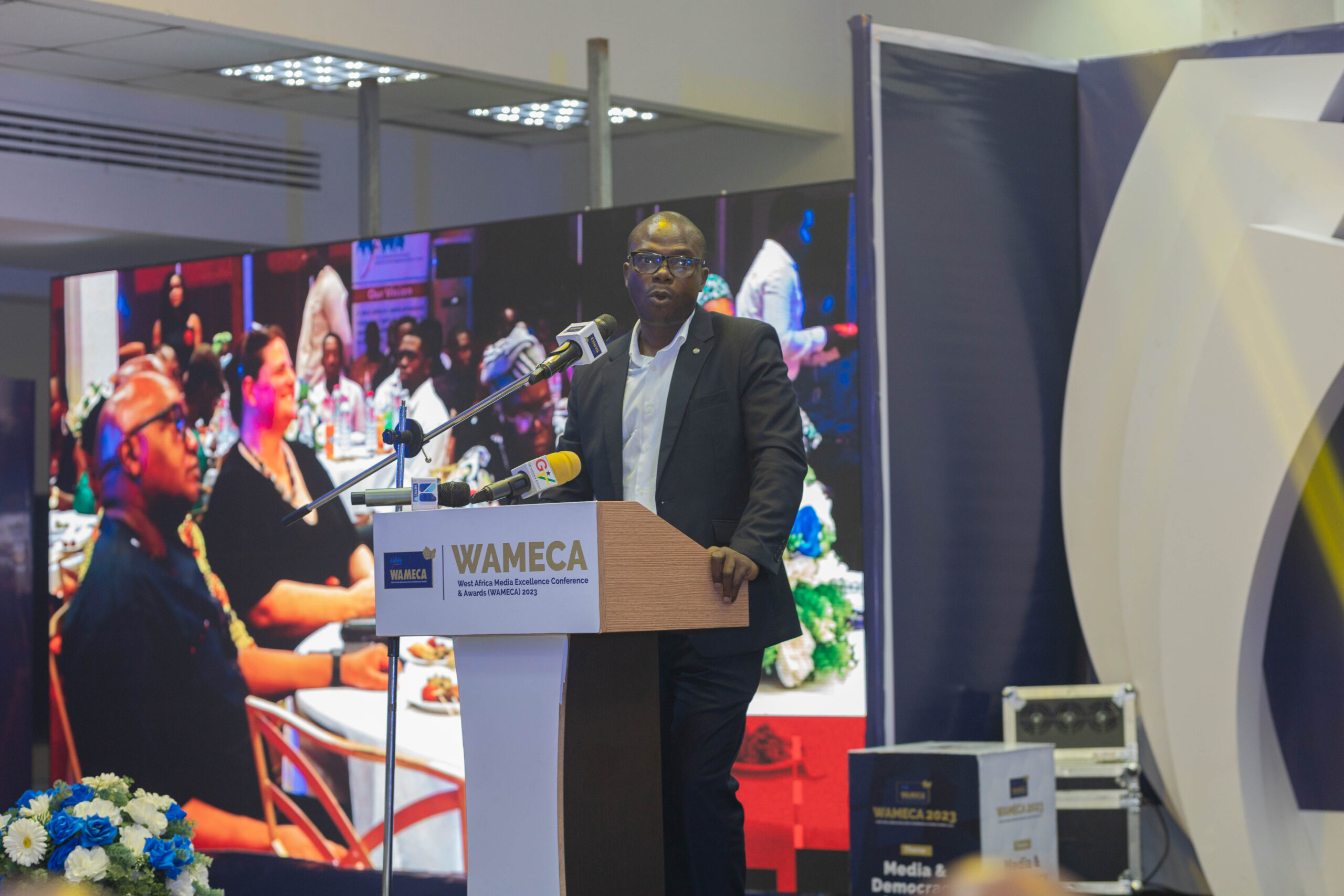
Emily Fertik, Public Affairs Counsellor, US Embassy, Ghana said the media is a bedrock of democracy adding that “there is no such thing as a strong democracy without a strong free press.”
She affirmed the US Embassy’s commitment to supporting media development and press freedom in Ghana in the coming year.
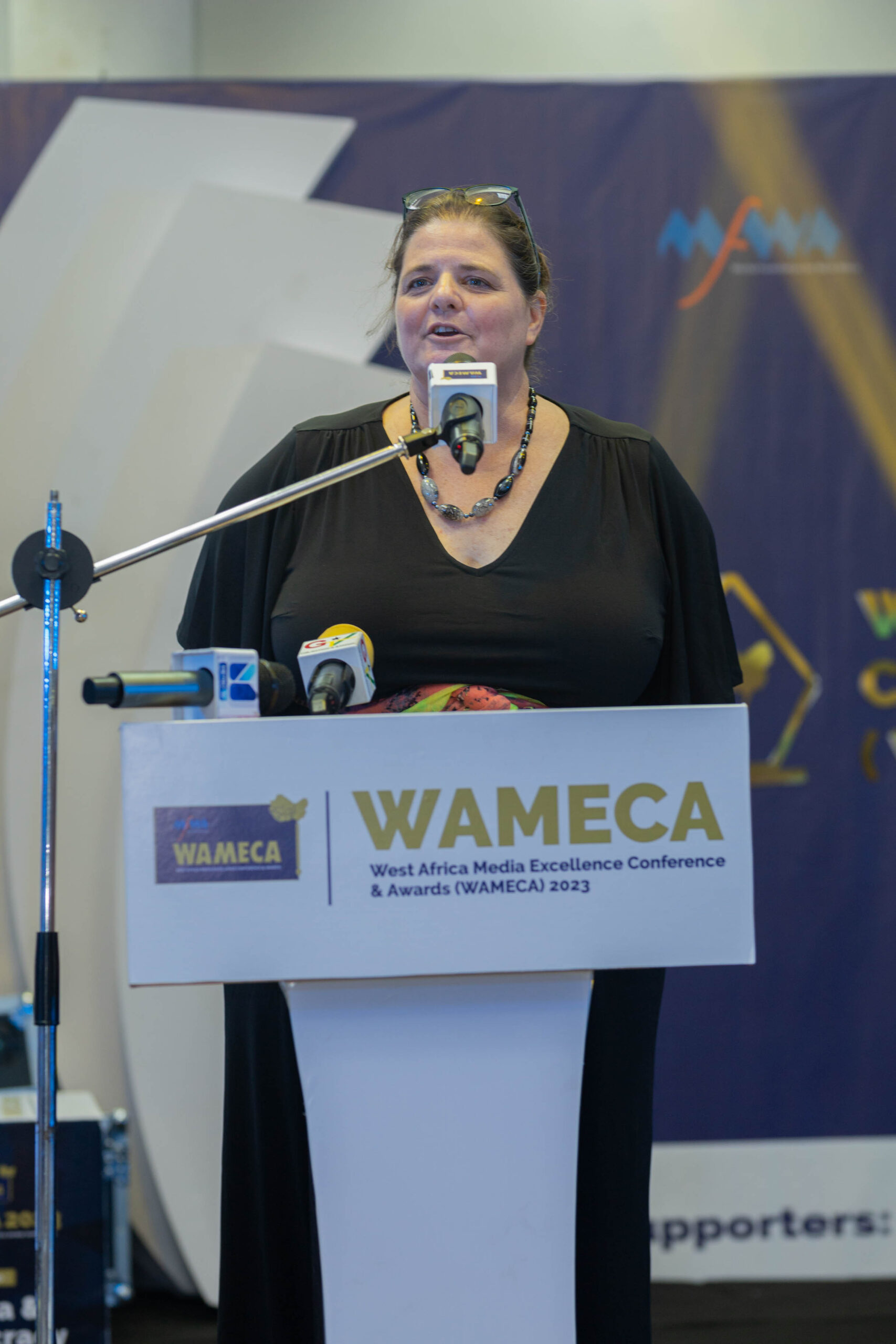
Emily Fertik, Public Affairs Counsellor, US Embassy, Ghana
On her part, the Deputy Minister for Information, Fatimatu Abubakar, called for a shared responsibility between journalists and the government to ensure media integrity.
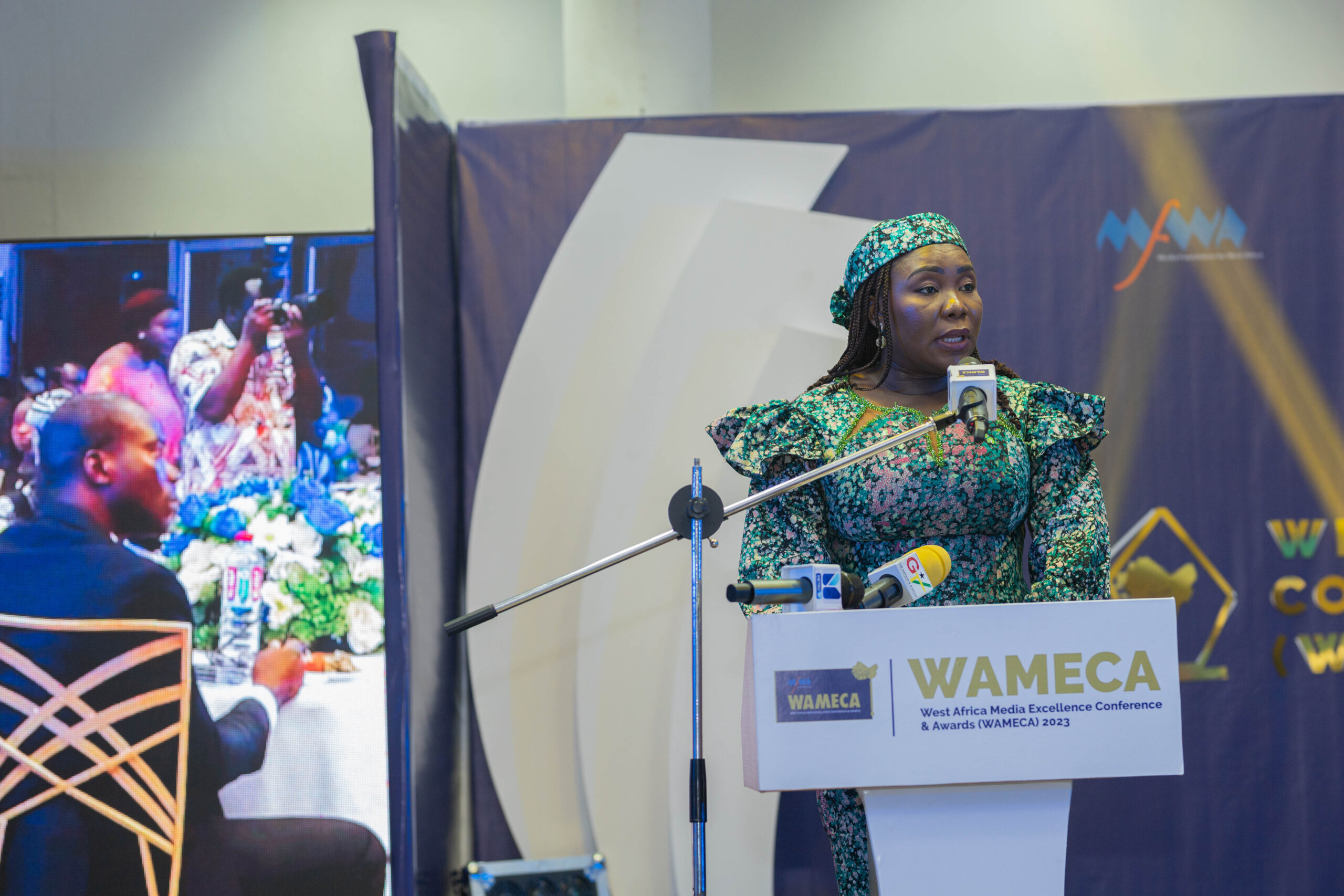
“Journalists must uphold the principles of truth, accuracy, and fairness, providing citizens with reliable information. Governments must uphold and protect the freedom of the press, ensuring that journalists can work without fear of reprisal,” she said.
Prominent human rights advocate and Senior Advocate of Nigeria, Femi Falan, who was the keynote speaker and guest of honour for the Awards event called on journalists in West Africa to pay attention to the economic programmes of their governments.
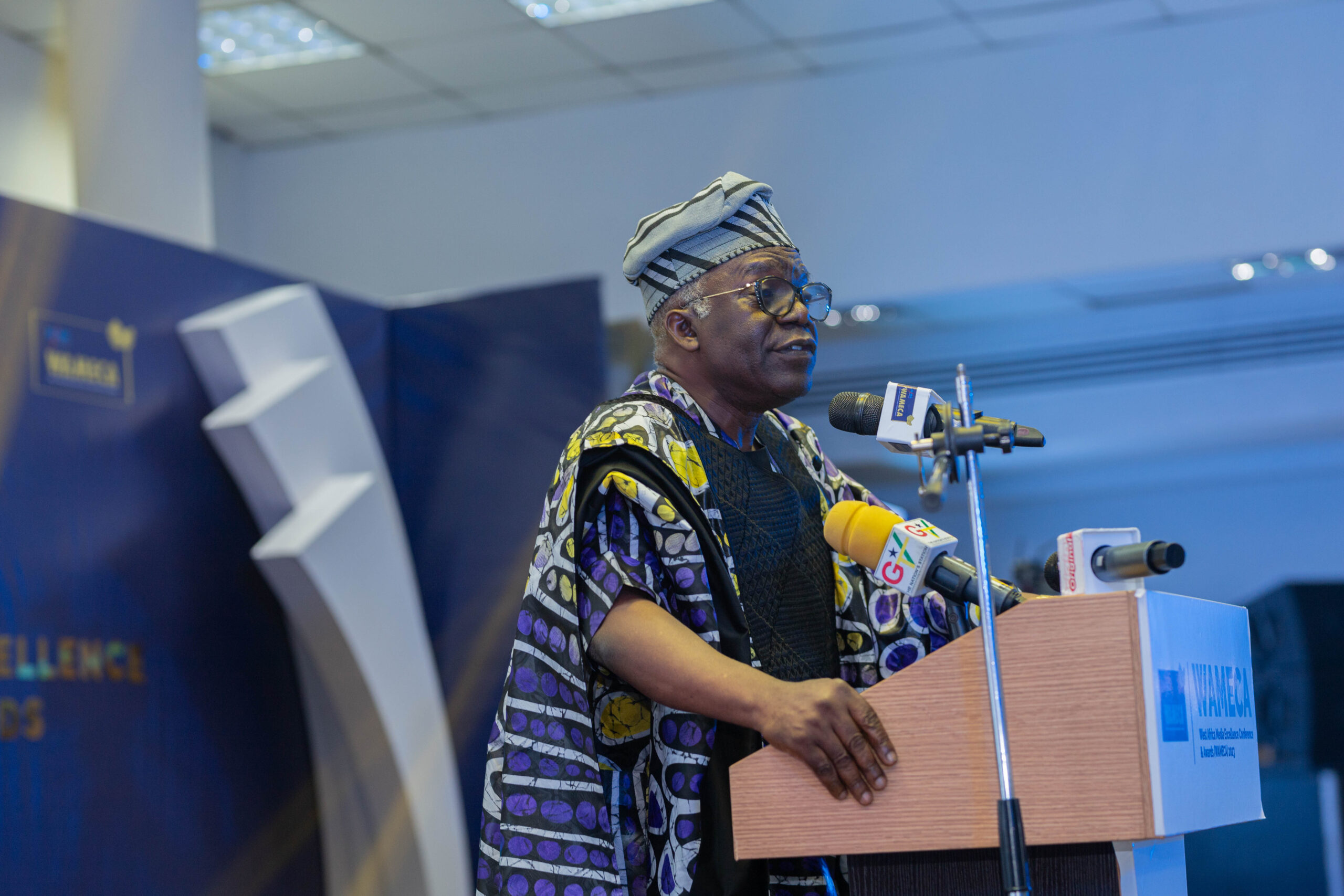
“I am going to challenge journalists today to please go out of the cocoon of politics. You have written very well on politics. Let us begin to interrogate the economic programmes of governments. The implementation of neo-liberal policies,” he said.
This year’s WAMECA was held under the theme “Media and Democracy in Africa.”
West Africa Media Excellence Conference and Awards (WAMECA 2023) is supported by the US Embassy in Ghana, OXFAM Ghana, West Africa Democracy Solidarity Network (WADEMOS), MTN-Ghana, and Stanbic Bank Ghana. The event is also supported by about 50 media partners across West Africa.
For more details on the event, contact Abigail Larbi-Odei (+233244867074) and Kwaku Krobea Asante (+233249484528) for media interviews.





